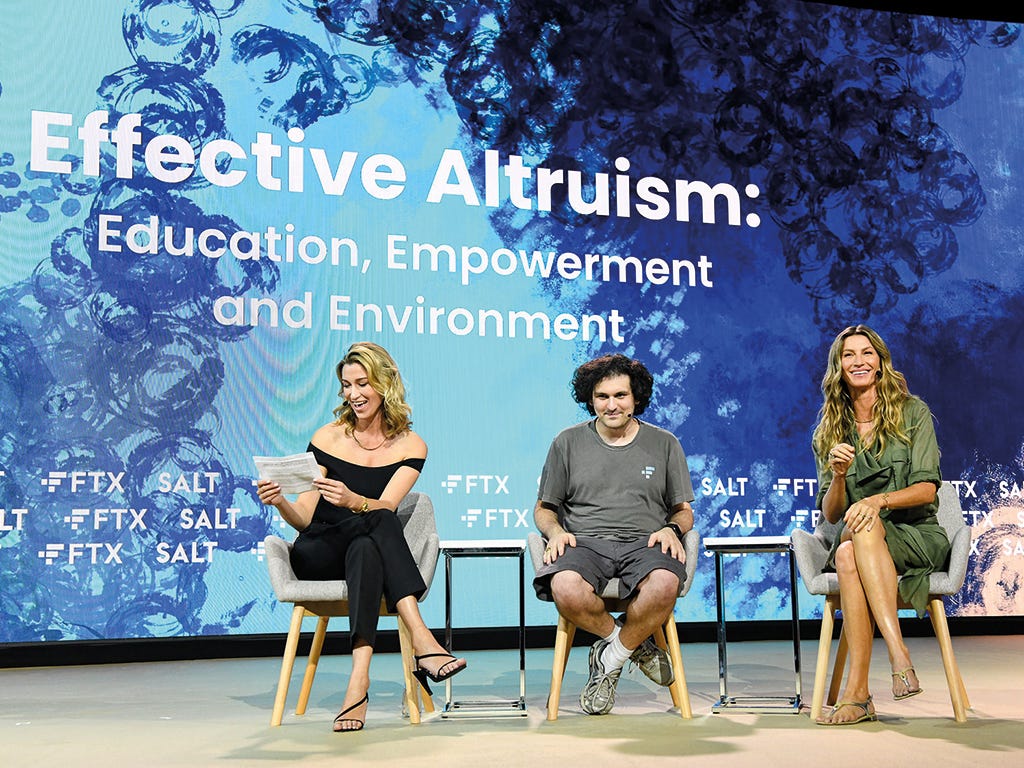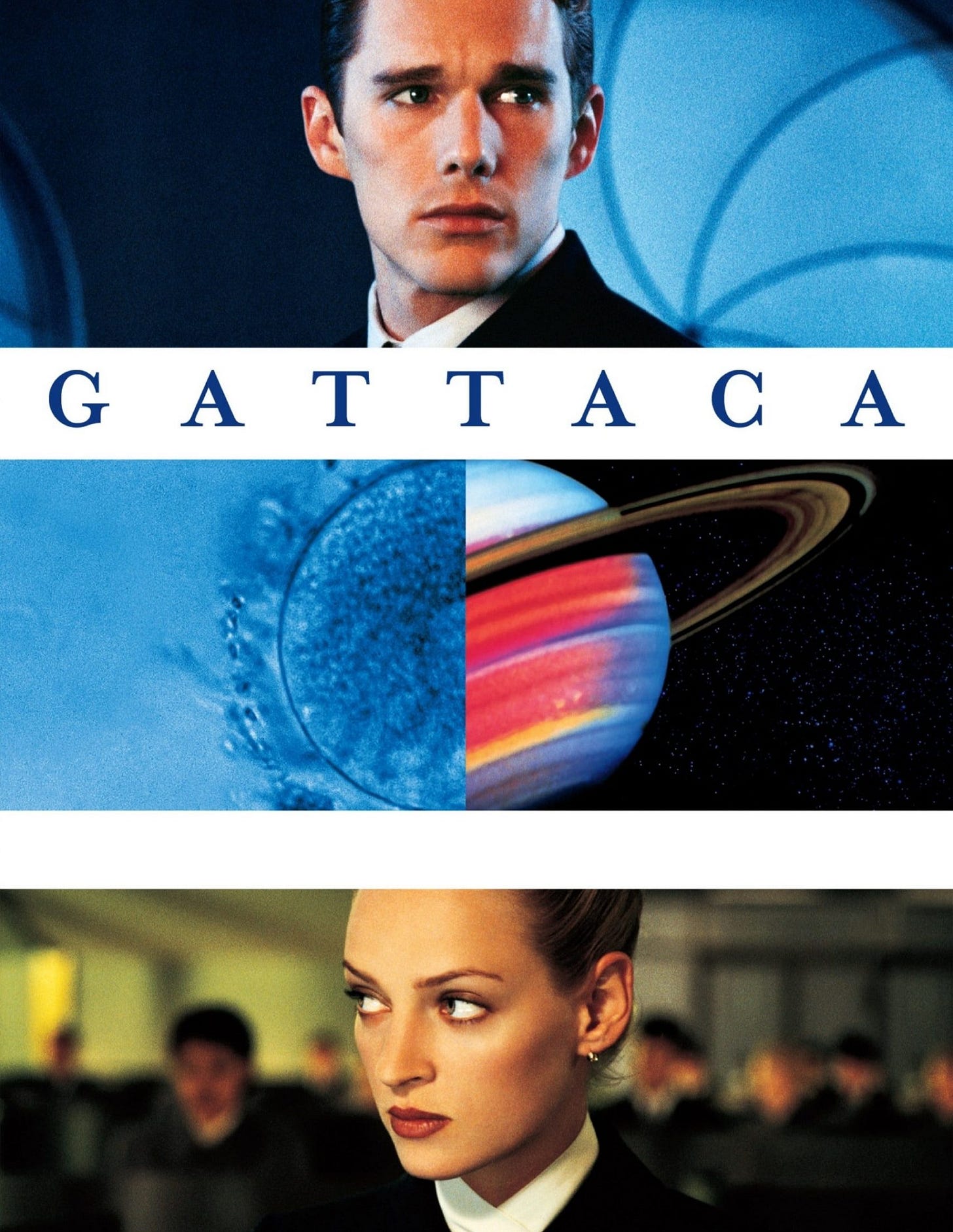Why Super Babies, Copying Ideas, Billionaires, and Immortality Are Good
Why Genetic Enhancement, Innovation, Wealth Creation, and Defeating Death Are Actually Moral Imperatives
I recently spent a Sunday vibe coding an ai-image-gen micro-SaaS. The person that inspired me accused me of copying his product and threatened me to damage my reputation. However, I improved on his idea by implementing several features his product didn’t have such as allowing for 7 multiple output styles, custom prompts, churn-prevention email follow-ups, and a landing page that better explains the product.
Most people hold fundamentally wrong ideas about morality. This includes thinking that copying business ideas or having CRISPR-edited super babies is immoral, that death is good, that the existence of billionaires is wrong, and that not helping others is immoral. They all spring from an avoidance of conflict: the conflict of ideas, the conflict of accepting not to exist, the conflict of envy, etc. This “morality” becomes destructive because it’s scared of the turning forces of evolution by evading conflict and adversity of any kind. It’s suffocating.
Morality is best explained by epistemology (the philosophy of knowledge), not religion or intuition. With this lens morality is the knowledge about what to want, and what to strive for1.
The most fundamental tenet of morality is to not remove the means of error-correction2. Since error-correction is the only way our knowledge can improve.
If society hinders a scientist from inventing and distributing a cure for cancer, that is deeply immoral. Many regulations that restrict the freedom of people and their ideas are immoral.
Copying someone's business
The Samwer brothers famously copied Airbnb and other companies, but these companies provided the solution to people in different geographies or demographics, improving access to the solution.
Their Airbnb clone, Wimdu, largely failed because it was only a surface-level copy that didn’t innovate on any aspect of the business. It incentivized Airbnb to innovate on better host support, internationalization, trust infrastructure, and regulatory compliance.
Opening a lemonade stand two blocks from an existing one incentivizes both lemonade stand operators to improve their lemonade. Competition leads to innovation.
Now, why do most people believe that copying someone’s business is immoral?
I think the main reason is that people think ideas can be “stolen”. That is wrong. Ideas are non-rivalrous3. And everyone should be incentivized to reproduce them and correct their errors. Problems are solvable4, and there is an infinity of problems (people always want more). IP law is another way to incentivize people to innovate. Unfortunately, large companies like Amazon (with hundreds of people in their internal legal department working on IP law) exploit this system to prevent competition.
But isn't competition for losers?
Peter Thiel famously proclaimed this in his book Zero to One. In a demand-constrained market, this is true. Building another AI headshot app wouldn’t be a great idea if the demand for AI headshots was shrinking rapidly. It is not.
Even Founders Fund (Thiel’s venture firm) invested in companies with strong competition:
Ramp: Launched two years after Brex; both grew quickly as financial operations digitalized.
Spotify: Entered a crowded market (iTunes, Pandora, Rhapsody) just as music streaming took off.
Rippling: Entered HR/payroll after Gusto, ADP, and Paychex; succeeded by bundling HR, IT, and finance as businesses moved to the cloud.
Postmates: Was started after Grubhub and Seamless, but grew fast as on-demand delivery became a habit.
Icon.com: Was started after there were already countless AI ad generator platforms. As more people consume short-form video content and realistic AI-image and video generation becomes possible demand for this kind of software is exploding.
It would be stupid to claim these companies are immoral because they copied another business. Here are some other moral mistakes I have considered lately. They range from economics to biology to altruism.
Altruism
Helping can be immoral if it prevents people from learning to solve their own problems. It can also be immoral if the invested resources could have led to a greater error correction. Socialism, with its underlying philosophy of altruism, is the embodiment of this error. For example, the US government taxes the 343 million Americans ~$1.2 trillion per year (that’s ~$3,580 per person on avg.) to fund a public education system that is stuck in the 1800s. These people could have used the resources the state took from them to buy education services from private companies that have a clear profit incentive to improve their service. To quote my previous post, “They don’t care if the students hate school” nor if they end up in student debt.
Being immortal
Death is not the only reason that life is “precious”. There are better reasons.
The idea that the shortness of life is what gives it its “meaning” is wrong. Meaning is not zero-sum. I.e., your life doesn’t have a fixed amount of meaning that is reduced if you live longer. The opposite is true, a longer life leads to more meaningful experiences. Life is more like water when you’re thirsty than a rare diamond; its value comes from how much you can experience, not from being limited in quantity.
Life is not its own meaning. Meaning comes from the things you do and create. If your life is unbounded, so is the meaning you can create within it.
People wear seatbelts. Nobody says, “I want to get hit by a car, because my life will have more meaning if it ends sooner.” There’s nothing inherently meaningful about limitation or scarcity by itself. If that were true, a two-day life would be more meaningful than a 70-year life.
Some argue that meaningfulness of life is binary. But if knowing the exact day of your death feels terrifying, that shows that it’s not simply mortality that gives meaning, but the unpredictable and exciting adventure of living itself.
Even Christianity calls death an enemy from humanity’s fall, promising its end: “The last enemy to be destroyed is death” (1 Corinthians 15:26). In paradise, “death shall be no more” (Revelation 21:4). It sees death as a problem to be solved, not a source of meaning.
Ultimately I think arguments that claim death is moral originated to cope with the fear of death. The thought that our existence suddenly stops. All the laughter, parties, friends, interesting conversation, sex, beautiful landscapes and skylines are suddenly taken from us, for eternity.
Nick Bostrom in his essay The Fable of the Dragon‑Tyrant calls this "deathist" ideology—the passive acceptance of what should be humanity's greatest enemy. My friend Arjun criticized other common arguments against immortality in his blog post.
Involuntary death isn’t a cosmic necessity; it’s a biological error, possibly the greatest error of all. And it’s one we may soon be able to fix. Just imagine the inventions we never experienced and how many more lives would flourish today if people like Euclid, Newton, Tesla, Marie Curie, or Alan Turing would still be alive.
CRISPER-edited Super Babies
Some people don’t like the idea of us playing God. But that is what we are now. We are as gods and might as well get good at it5.
Others claim that gene-editing super babies (to be free from disease or just smarter) would be an innovation that only the rich could afford, thereby creating a segregated society. The 1997 movie Gattaca is a dramatization of this claim.
That logic is wrong because it impedes the spread of an innovation (and error correction). The assumption that non-gene-improved people will be relegated to menial jobs is also wrong because there are many wealthy people with fun jobs who are low in IQ or disabled.
History shows that innovation disperses. Initially only the rich could afford better nutrition or computers. Should we have waited before allowing people to buy a computer until they are cheap enough for eight billion people to have their own? No.
Opposing gene-editing is like opposing antibiotics because not everyone could afford penicillin in 1928.
The technology is here. Using embryo selection or gene editing to have a super baby is a choice about your body and procreation. Some people don't think you should have this choice. But it's not their choice to make. It's yours6.
Billionaires
Some people claim billionaires shouldn’t exist. That is wrong. I'd even go so far to say that not wanting to be a billionaire (or trillionaire) is wrong. Ambition is a consequence of optimism. In his Davos 2024 speech Javier Milei said:
Let no one tell you that your ambition is immoral
We are like billionaires to people living 5000 years ago. If some of these people did not desire immense wealth, we’d probably still live in mud huts now. We're like iron age peasants to the people that will live 2000 years from now.
Like every other destruction of optimism, whether in a whole civilization or in a single individual, these must have been unspeakable catastrophes for those who had dared to expect progress. But we should feel more than sympathy for those people. We should take it personally. For if any of those earlier experiments in optimism had succeeded, our species would be exploring the stars by now, and you and I would be immortal.7
I think the disgust of the existence of billionaires likely stems from envy. But that response is wrong. What matters is not the relative, but the absolute wealth and well-being of people. In the future, inequality will become ever greater. Some people will own entire galaxies, while others will only own a continent on a single planet. Everyone will be immensely more wealthy.
Thanks for reading this. I’ll now continue playing the infinite game of capitalism.
Thanks to my friends for feedback on this essay: Tom Hyde, Milan Scharfe, Ben Chugg, Vaden Masrani, Maxime Desalle, Saketh, Jesse Ray Nichols, David Taurat, Logan Chipkin, Brian Chau, Remus
The Beginning of Infinity, Chapter 3. The Spark, Page 61
See discussion here: https://nav.al/david-deutsch
While ideas as abstract knowledge are non-rivalrous, their application can involve rivalry over scarce complementary resources such as capital, employees, customers, or attention. In this practical sense, ideas can “compete,” but this competition is itself part of the process of error-correction and innovation.
The Beginning of Infinity, Chapter 3, The Spark, Page 64
Stewart Brand, Whole Earth Catalog, opening sentence, 1968
Quoting my friend Kian Sadeghi in his launch video for Nucleus.
The Beginning of Infinity, Chapter 9, Optimism, Page 218






'We're like iron age peasants to the people that will live 2000 years from now.'
Facts. FACTS🐋👍 Awesome article, I'm buzz'n. I will now copy it and improve it...🤣 nah nah nah man- it's great, I got noth'n I can improve here. Fair play👍👍🐋🌌